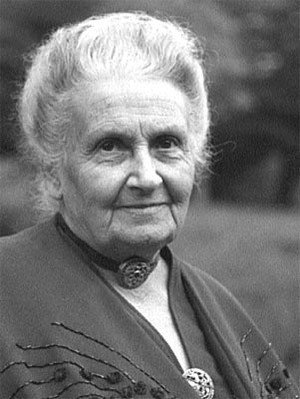
Born in Italy in 1870, Maria Montessori graduated from the medical school at the University of Rome in 1896, making her Italy’s first female physician. During her career, she focused her studies on the development of children and how they seemed to construct their own personalities based on their interactions with the environment in which they lived. Through extensive observation, Dr. Montessori developed her approach to education, which emphasizes natural development of children and their intrinsic human tendencies to explore, discover, and learn from the world around them.
The Montessori Method
Dr. Montessori designed her educational method to assist children in their growth and development from childhood to maturity. One key to this is the prepared environment of the classroom in which developmentally appropriate materials are laid out in an attractive and welcoming manner, encouraging children to respond to their natural curiosity and desire to learn.
A trained adult (we call them “guides”) assists children in one-to-one or small-group settings in learning how to use the materials. And through the children’s work, they develop impressive powers of concentration and happy self-discipline.
The Montessori Method encourages the development of the whole child: mentally, socially, physically, and emotionally. We firmly believe that learning how to prepare, serve, and clean up a meal is just as important as learning the alphabet.
The central philosophy of Montessori education — that effective education is self-directed education, and that the development of the whole child is vital — prepares the children of today to face the challenges and appreciate the joys of the future. In short, a Montessori education prepares children to think and act for themselves, confidently and compassionately, as members of a community.
